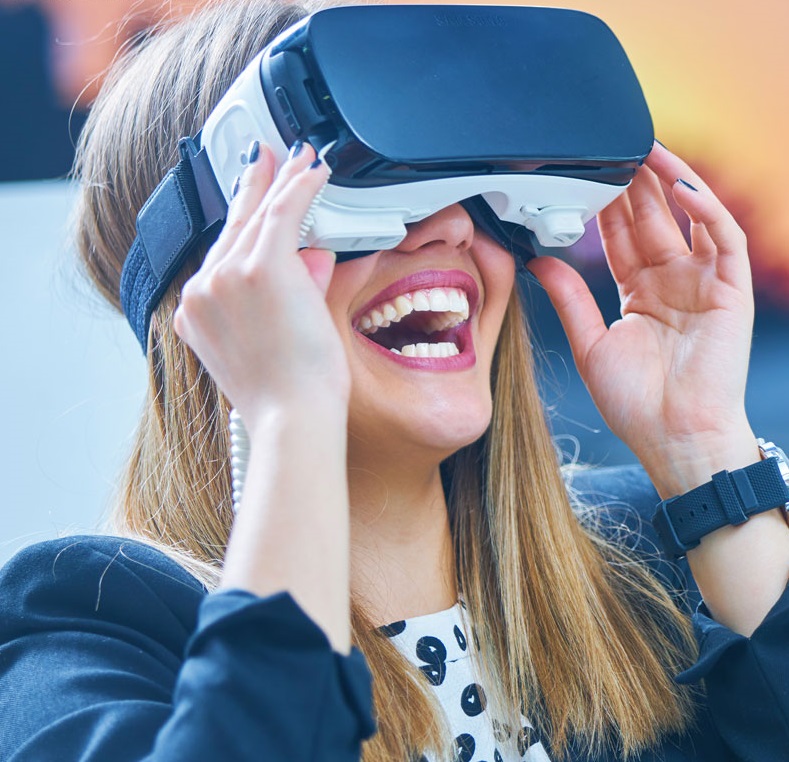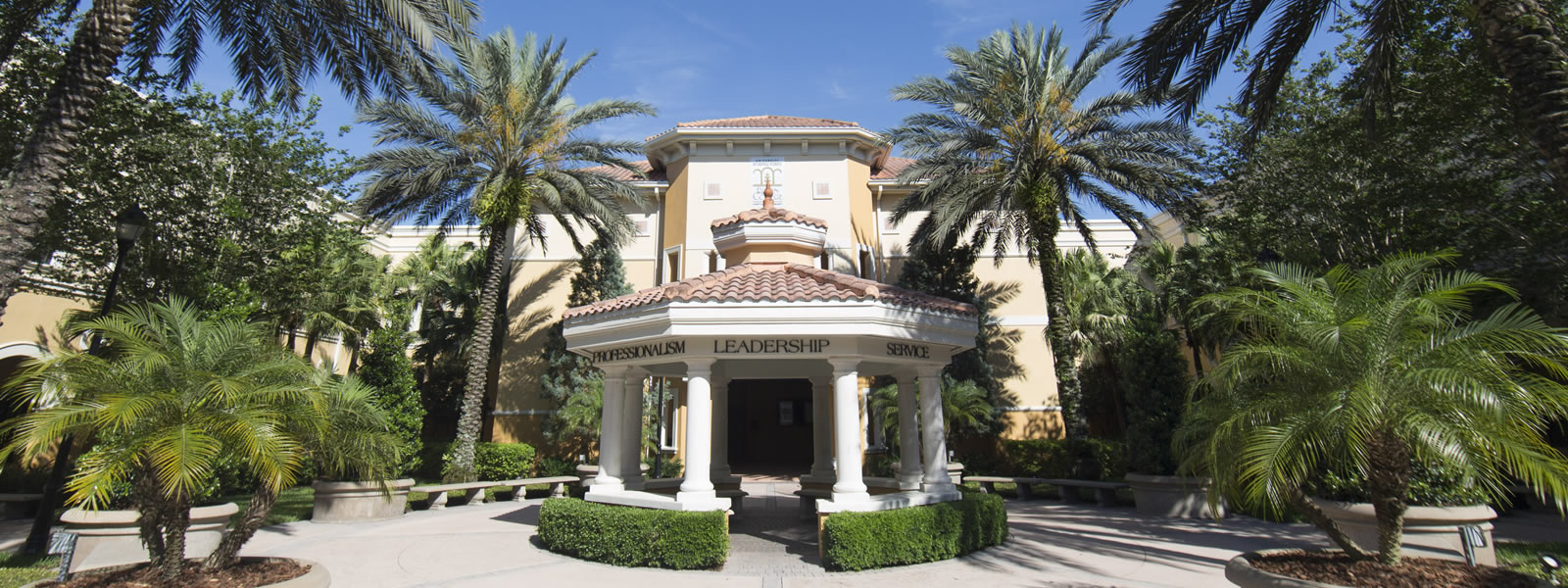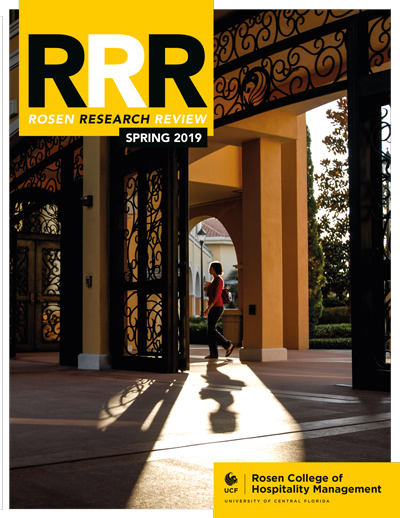Rosen Research Review: How Effective Are Virtual Reality Experiences as Destination Marketing Tools?
 How did you decide where to go on your last holiday? Did you see a on your social media feed? Once upon a time, planning your perfect holiday was organized with a trip to the local travel agency. In recent years you are more likely to pick your destination based on the most attractive advertisements at the top of an online travel agency website. Dr. Mathilda van Niekerk, Dr. Marissa Orlowski and Dr. Fevzi Okumus from Rosen College of Hospitality Management, along with Alessandra Marasco and Dr. Piera Buonincontri from the National Research Council’s Institute for Research on Innovation and Services for Development (CNR-IRISS) have been researching an even more immersive and compelling destination marketing tool though; can virtual reality experiences persuade us to visit a destination?
How did you decide where to go on your last holiday? Did you see a on your social media feed? Once upon a time, planning your perfect holiday was organized with a trip to the local travel agency. In recent years you are more likely to pick your destination based on the most attractive advertisements at the top of an online travel agency website. Dr. Mathilda van Niekerk, Dr. Marissa Orlowski and Dr. Fevzi Okumus from Rosen College of Hospitality Management, along with Alessandra Marasco and Dr. Piera Buonincontri from the National Research Council’s Institute for Research on Innovation and Services for Development (CNR-IRISS) have been researching an even more immersive and compelling destination marketing tool though; can virtual reality experiences persuade us to visit a destination?
Gone are the days where we tortured our relatives and close friends with a stack of printed photographs on our return from our annual holiday. Tourists now share their experiences and emotions about new places in real time – over the internet. This movement has fed into how successful destination marketing works in the 21st century. Destination marketing professionals have looked to exploit our cultural habits in recent years, promoting a particular country, region, city, place to stay or experience via a combination of social media marketing and search engine optimization. To be effective, destination marketers nowadays need to ensure websites are quick, striking and mobile-ready, they need to build a memorable and appealing brand for the place being endorsed and they must fully engage and interact with customers over social media, both before, during and after vacations.
Destination marketers can play a key role in the socioeconomic conditions of a particular place, bringing in private investment and tourist revenue, resulting in higher employment and a better quality of life for local residents. There is a balance to be struck though; over- tourism can lead to cultural dilution and the pricing out of local populations. Destination marketers hold a level of responsibility to preserve cultural practices, protect the environment and ecology and respect social norms. With the rise of disposable incomes in the Western world and an increase in interest in spending on experiences rather than things, the global tourist market has become progressively more competitive and crowded. Destination marketers should look for much more innovative and eye-catching ways to promote their ‘product’ and enhance the experience of holiday shopping, as well as staying true to the values of the responsible promotion of place and culture.
The exponential growth in the availability and possession of smart mobile technologies – phones and tablets in particular – has been integral to the rise of the internet and social media in the West. With this has come the possibility for the use and development of accessible virtual reality technologies and applications by destination marketing organizations. Virtual reality marketing applications give potential visitors the chance to explore, experience and evaluate a destination before their physical visit. Recent advancements in the variety of technologies available to create virtual reality experiences, including wearable devices such as head- mounted displays, smart watches, wristbands and body-worn cameras, have enabled marketers to come up with new ways of enriching and personalizing the process of buying, having and sharing holidays. These technologies are at the sharp end of destination marketing, and along with more traditional online and social media methods, are shaping modern tourism.
Photo: icemanphotos/Shutterstock.com
VIRTUAL REALITY VERSUS REAL LIFE
Can a virtual reality experience really influence not just what you know about a place you haven’t visited yet, but the way you feel about it too? Can this influence stretch to how you actually experience a destination once you arrive, and how you communicate the trip after your return home? Whilst it has been acknowledged that virtual reality experiences and devices such as head-mounted displays can build awareness, interest and anticipation in relation to a destination, and are particularly suitable for delivering engaging content related to difficult to access cultural heritage sites, until now there has been little to no research into how this actually translates into traveler behavior intentions.
As a center of expertise in hospitality, with international key opinion leaders teaching and researching in state-of-the-art facilities, our faculty at Rosen College of Hospitality Management (University of Central Florida), along with their connections with industry partners, are well placed to carry out both cutting edge and topical research into virtual reality destination marketing. In a recent collaboration with researchers Alessandra Marasco and Dr. Piera Buonincontri from the National Research Council’s Institute for Research on Innovation and Services for Development (CNR-IRISS) Naples, Italy, Rosen College’s Dr. Mathilda van Niekerk, Dr. Marissa Orlowski and Dr. Fevzi Okumus have been investigating the impact of virtual reality experiences created with the newest wearable technologies on intentions to visit sites and attractions at a particular destination. Via survey results collected at a specific destination (Naples, Italy), the team examined the impact of perceived visual appeal and emotional involvement (following a virtual reality experience with a head-mounted display) on behavioral intentions towards the destination.
The research team employed an immersive virtual reality experience created for the promotion of the Fontanelle Cemetery, an ossuary in a cave in Southern Italy dating back to the 16th century. The experience involved wearing a head-mounted display in a dedicated cabin near the historic center of Naples; users were virtually immersed in the cemetery site and could explore it while the story of the cave was narrated to them visually and orally by actors. Perceived visual appeal and emotional involvement of the participants were measured by the researchers using a questionnaire.
The survey results led the researchers to conclude that perceived visual appeal had both a positive and significant impact on the intentions of potential visitors to the cemetery and led to emotional involvement with the site. However, emotional involvement itself, and the virtual reality experience’s capacity to immerse the subject in the virtual environment, did not have a positive or significant effect on behavioral intentions. This is in contrast to previous studies and led the authors of the paper to suggest that such a virtual reality system may not be enough to engage users as potential future visitors.
It is possible that this result is a product of either the type of site studied (the cemetery itself may mainly appeal to a particular type of tourist interested in ‘dark tourism’ rather than a more general and casual sightseeing tourist) or as a result of the ‘replacement effect’ (an effect acknowledged and debated by destination marketing researchers in which virtual reality visits negate the need/desire for real-life visits to destinations). So, while this particular research supports the use of a virtual reality experience to create a visually appealing replica of a cultural heritage site that may translate into increased visits, it also instigates discussion of the possibility that in some cases such well put together experiences may lead to a lower rate of intention to visit places and attractions. It is clear that going forward, destination marketers need to think carefully about both aspects of such research results when creating marketing content using new technologies.
IS THE FUTURE VIRTUAL?
This research, published in the Journal of Destination Marketing and Management is among one of the first research projects to empirically evaluate the influence of virtual reality experiences on destination visit intentions, and as such will be invaluable to destination marketing organizations looking to improve their marketing strategies. From a theoretical perspective, the study begins to add to the so far sparse literature confirming that virtual reality experiences should be considered as an important element in the toolkit of destination marketers, as well as introducing ‘perceived visual appeal’ and ‘emotional involvement’ as strongly related factors that influence behavioral intentions. It also highlights the particular importance of the visual attractiveness of the destination within the experience as a factor that leads to both emotional involvement and visits/revisits.
Destination marketing organizations need research such as this in order to aid decision-making regarding expensive new virtual reality technologies and devices and to ensure they remain ahead in the ever- competitive tourism market. As has always been the case be assessed on a site-by-site basis; virtual reality may not be appropriate or successful for all sites and markets. Going forward, it appears that while virtual reality has a place along with the internet and social media in selling holiday destinations and attractions, there is still much we do not know about the impact it may have on the industry. Can it be effective as a teaser trailer for potential visitors? Will it become the cheaper and more convenient replacement for real travel? Could it be used to facilitate experiences of sites which are no longer (or have never been) accessible to the everyman because of environmental change or degradation? Will it become a sellable destination experience in itself?
 Dr. Mathilda van Niekerk is an Associate Professor in the Tourism, Events and Attractions (TEA) Department at the University of Central Florida’s Rosen College of Hospitality Management, USA. Her research focuses on festivals and events, destination marketing and management and hospitality and strategic management. She has extensive experience in the planning and managing of mega-events and festivals.
Dr. Mathilda van Niekerk is an Associate Professor in the Tourism, Events and Attractions (TEA) Department at the University of Central Florida’s Rosen College of Hospitality Management, USA. Her research focuses on festivals and events, destination marketing and management and hospitality and strategic management. She has extensive experience in the planning and managing of mega-events and festivals.
E: Mathilda.vanniekerk@ucf.edu
T: +1 (407) 903 8052 W: https://hospitality.ucf.edu/ person/mathilda-van-niekerk/
 Dr. Marissa Orlowski is an Assistant Professor in the Foodservice and Lodging Management Department at UCF’s Rosen College of Hospitality Management, USA. Her academic career is preceded by extensive management experience in the hospitality industry; her primary research interest lies in the domain of food and beverage. She also serves as an Associate Editor for the International Journal of Contemporary Hospitality Management.
Dr. Marissa Orlowski is an Assistant Professor in the Foodservice and Lodging Management Department at UCF’s Rosen College of Hospitality Management, USA. Her academic career is preceded by extensive management experience in the hospitality industry; her primary research interest lies in the domain of food and beverage. She also serves as an Associate Editor for the International Journal of Contemporary Hospitality Management.
E: Marissa.orlowski@ucf.edu
T: +1 (407) 903 8170 W: https://hospitality.ucf. edu/person/marissa-orlowski
 Dr. Fevzi Okumus is the CFHLA Preeminent Chair Professor within the Hospitality Services Department at the University of Central Florida’s Rosen College of Hospitality Management, USA. Dr. Okumus’ teaching and consultancy areas include hotel/lodging management, strategic management, leadership development, international hospitality management and introduction to hospitality and tourism.
Dr. Fevzi Okumus is the CFHLA Preeminent Chair Professor within the Hospitality Services Department at the University of Central Florida’s Rosen College of Hospitality Management, USA. Dr. Okumus’ teaching and consultancy areas include hotel/lodging management, strategic management, leadership development, international hospitality management and introduction to hospitality and tourism.
E: fevzi.okumus@ucf.edu T: +1 (407) 903 8177
W: https://hospitality.ucf.edu/person/fevzi-okumus/
Researchers in Focus
Research Objectives
This research examines whether virtual reality experiences can be effective destination marketing tools
Funding
Campania Region and the National Research Council’s Institute for Research on Innovation and Services for Development (CNR-IRISS), Italy.
Collaborators
National Research Council’s Institute for Research on Innovation and Services for Development (CNR-IRISS), Italy.
References
Marasco, A., Buonincontri, P., van Niekerk, M., Orlowski, M., & Okumus, F. (2018). Exploring the role of next-generation virtual technologies in destination marketing. Journal of Destination Marketing & Management. SCCI/Indicative list (DMM).
Personal Response
Where do you stand on the debate regarding the possible ‘replacement effect’ of real-life visits by virtual reality visits?
Marissa Orlowski: Virtual reality doesn’t replace the experience, the adventures, or the memories of visiting the world. What it can do is create a unique opportunity to stimulate interest in travel and destinations.
Do you think technology is making it easier or more difficult to successfully market a destination?
Mathilda van Niekerk: Technology assists destination marketers to give us the freedom to visit the tourism destinations in the comfort of our living rooms. We can gather information on the best time to visit, see what to expect, prices for accommodation, activities and transportation and then make a much more informed decision on where we really want to go. Although technology can assist us to gain all the insights about a destination, it can also cause information overload. With so much information coming from so many different platforms, deciding where to go becomes more and more difficult. Although there are advantages and disadvantages of technology, it has definitely made it easier for DMOs to market destinations. They not only can provide information but also add visual components like 360-degree views of a destination which was not previously possible with traditional marketing methods.




